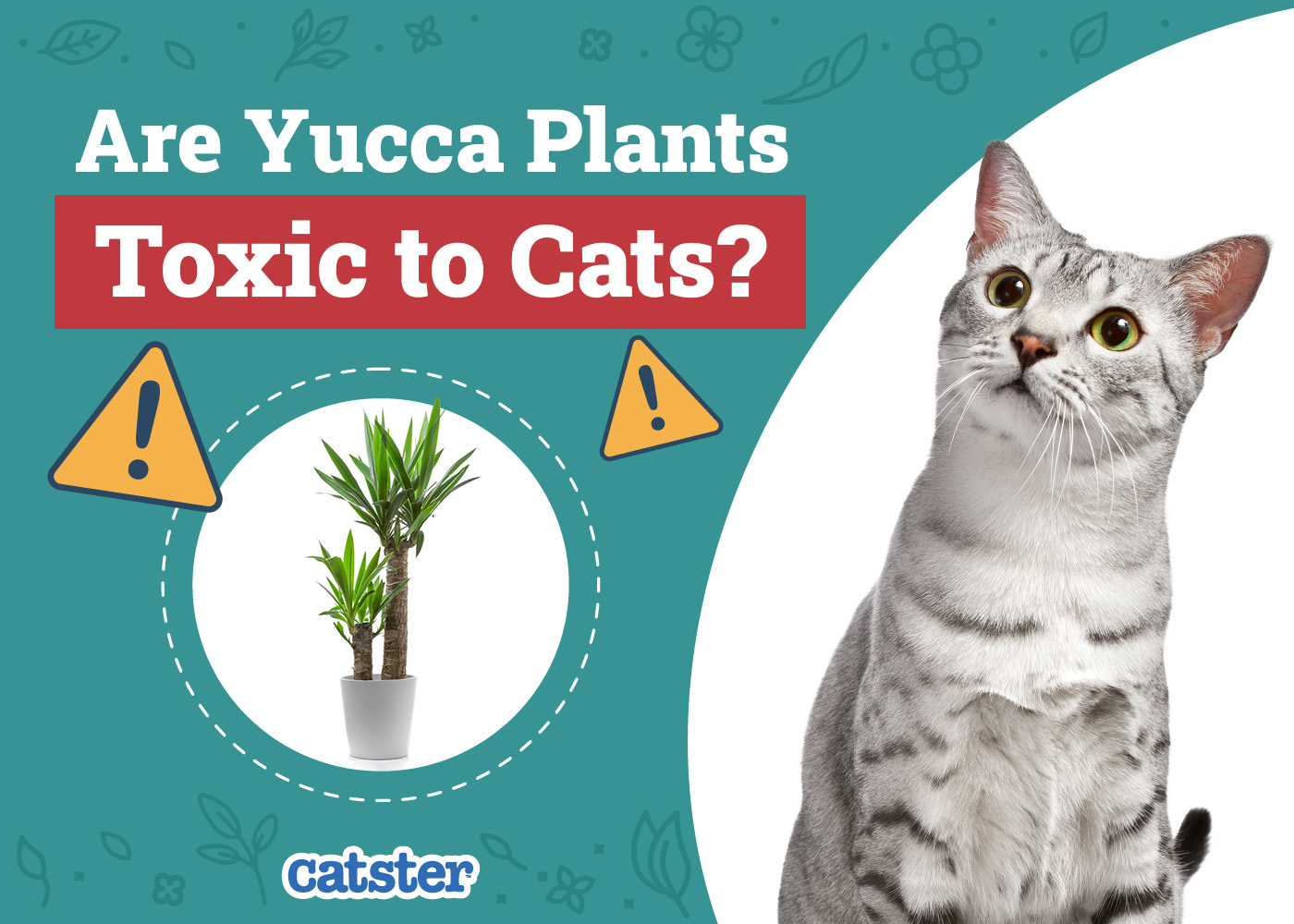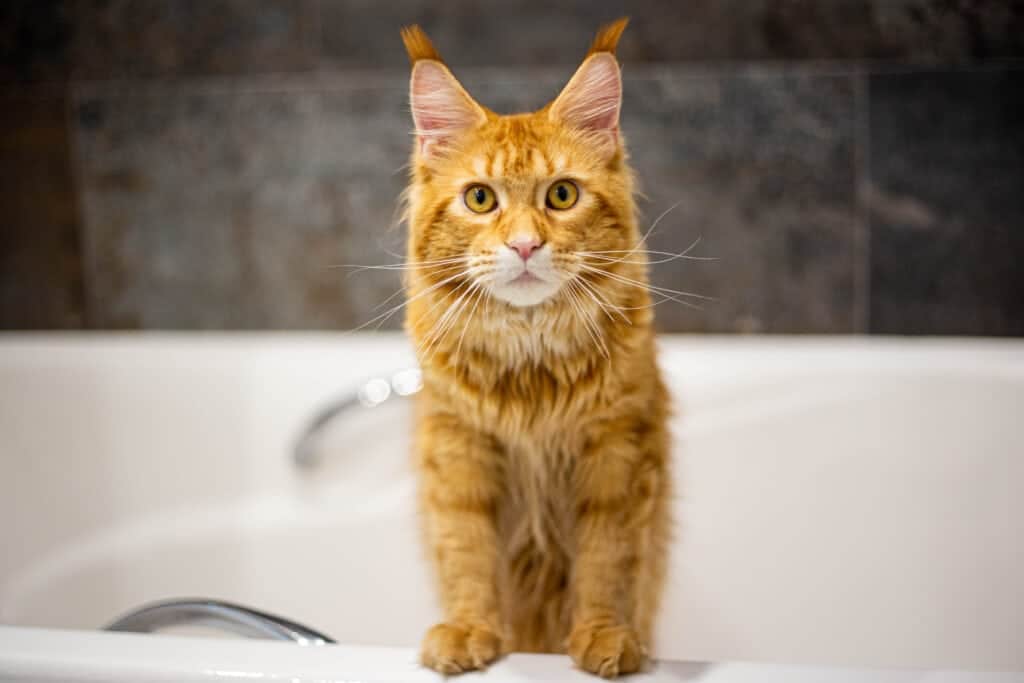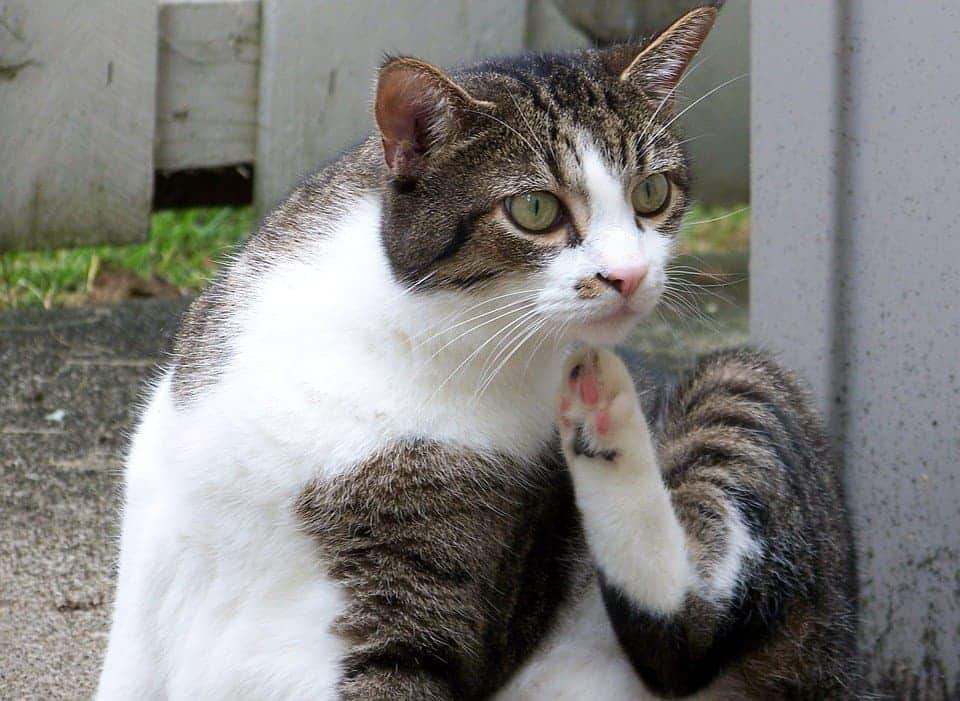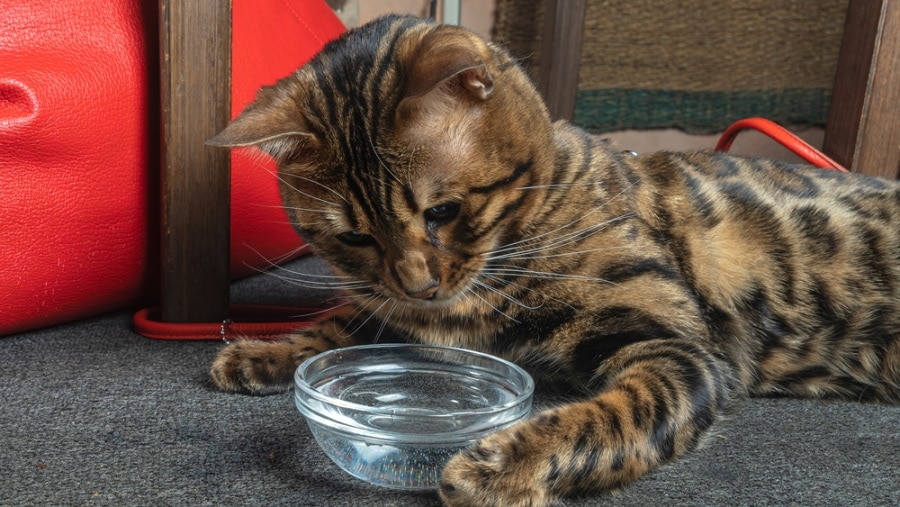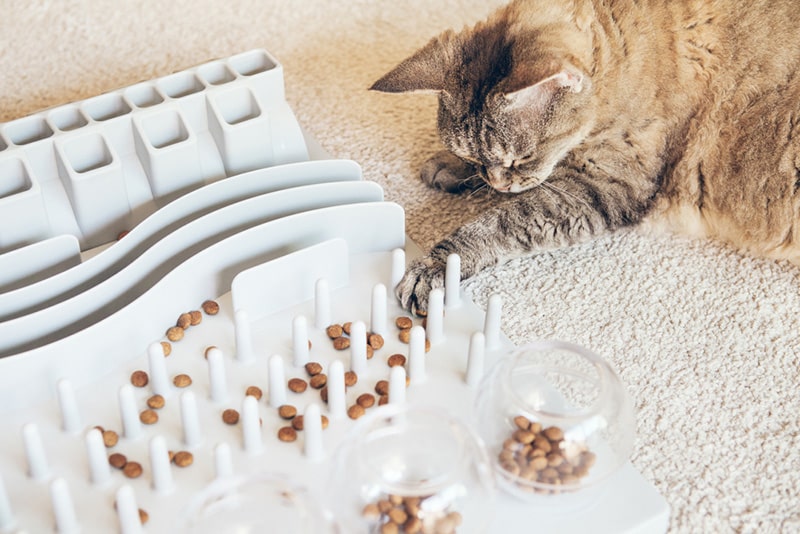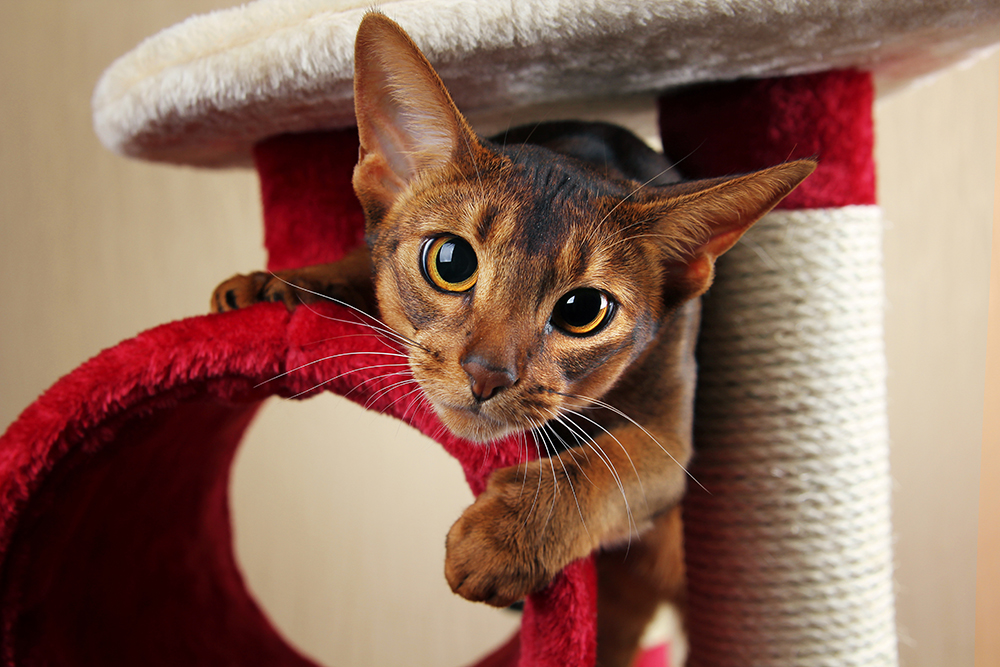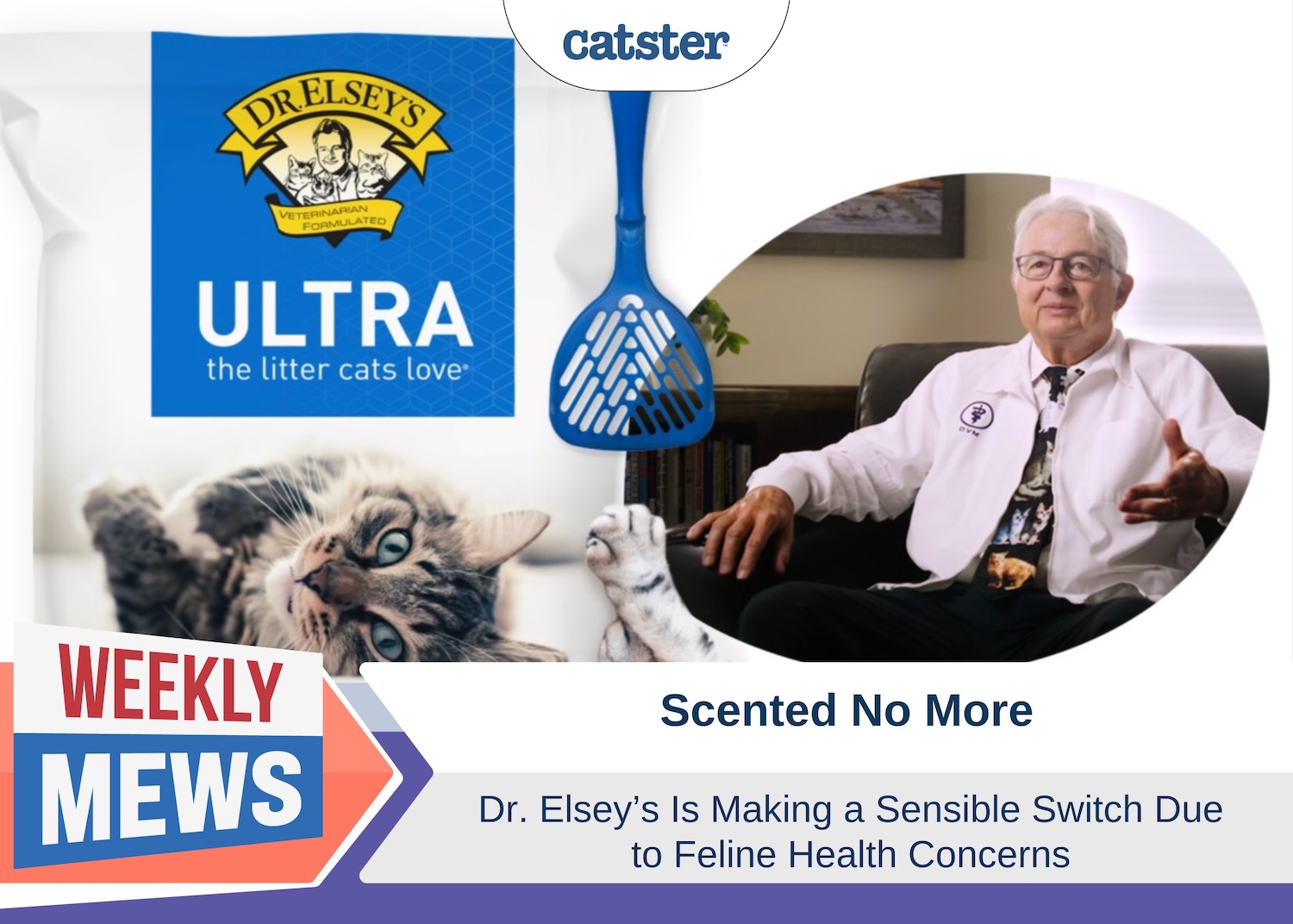Click to Skip Ahead
Yucca, a kind of desert plant, is a popular garden plant that thrives in warm, dry areas. They don’t need a ton of water to grow, and they are distinctive and beautiful, with a big spray of spike-shaped leaves. They also do well as hardy indoor houseplants. However, are yucca plants toxic to cats? Yes, they are. If you have a cat in the house, make sure that they keep their paws off.

Recognizing Yucca
Yucca plants are easy to recognize. They grow a cluster of bluish-green leaves that are long, triangular, and slightly sharp. They might have a short trunk or grow right next to the ground. From a distance, they often look like a ball of spikes. They grow well in hot, arid climates, and during the spring, each plant will have a long stalk with small white flowers.
Saponins and Pet Poisoning
Yucca plants are toxic to cats because they are full of saponins. This compound is meant to keep unwanted animals and insects clear, and it generally does a pretty good job. It is spread throughout the plant, including in the leaves, which is where cats are most likely to nibble. However, the concentration is low enough that your cat is unlikely to face a serious case of poisoning.
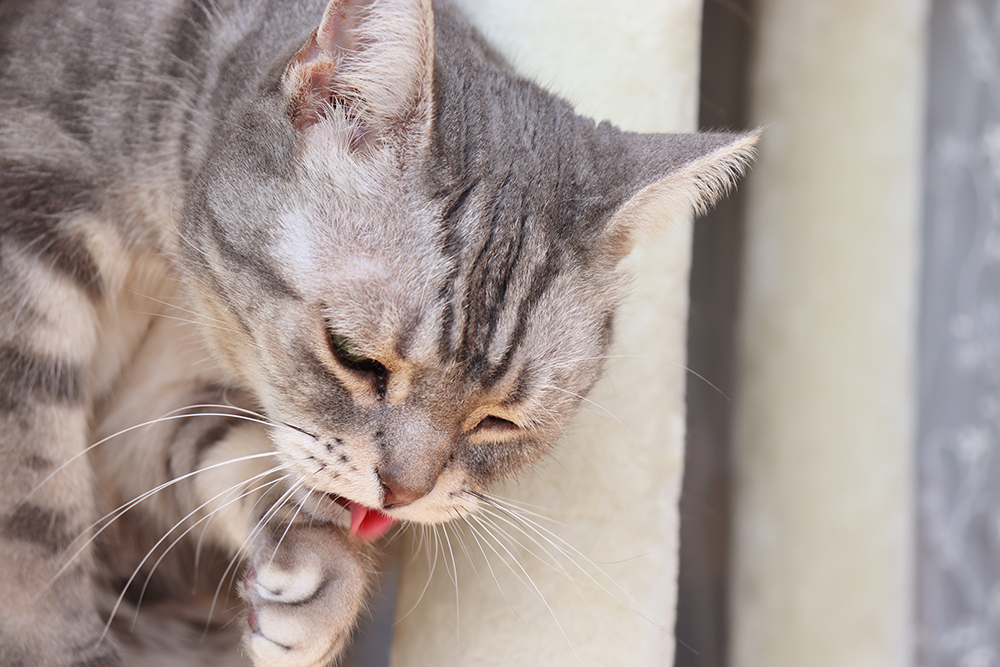

Signs of Ingestion and Treatment
If your cat does eat yucca, the most common signs are vomiting and diarrhea. Vomiting helps your cat get rid of the toxin, and usually, if your cat vomits without any other signs, they won’t need extra medical care. However, in serious cases or if your cat eats small amounts over time, other signs might occur, including drooling, weakness, lack of motor coordination, and, in the most serious cases, seizures. If you see these more serious signs, seek veterinary care immediately. Yucca poisoning can be fatal in the worst cases.
If you need to speak with a vet but can't get to one, head over to PangoVet. It's an online service where you can talk to a vet online and get the advice you need for your pet — all at an affordable price!
Yucca vs. Cassava
Sometimes, cassava plants, also called yuca, are confused with yucca. Although these plants have similar names, they aren’t actually closely related. Cassava does contain toxic compounds, but they are at a much lower concentration than the saponins in yucca, so they are generally considered to be safe for pets.
Yucca Extract
Yucca plants aren’t safe for pets to eat, but you might notice yucca products being marketed for cats or lurking in an ingredient list. Don’t worry, yucca extract is rare but not dangerous if it has been properly processed. The extraction process removes saponins so that your cat won’t get hurt. Most often, it’s part of herbal or alternative remedies for humans and cats, and although we can’t say that they have any research to support their health benefits, they do offer the benefit of not being harmed.
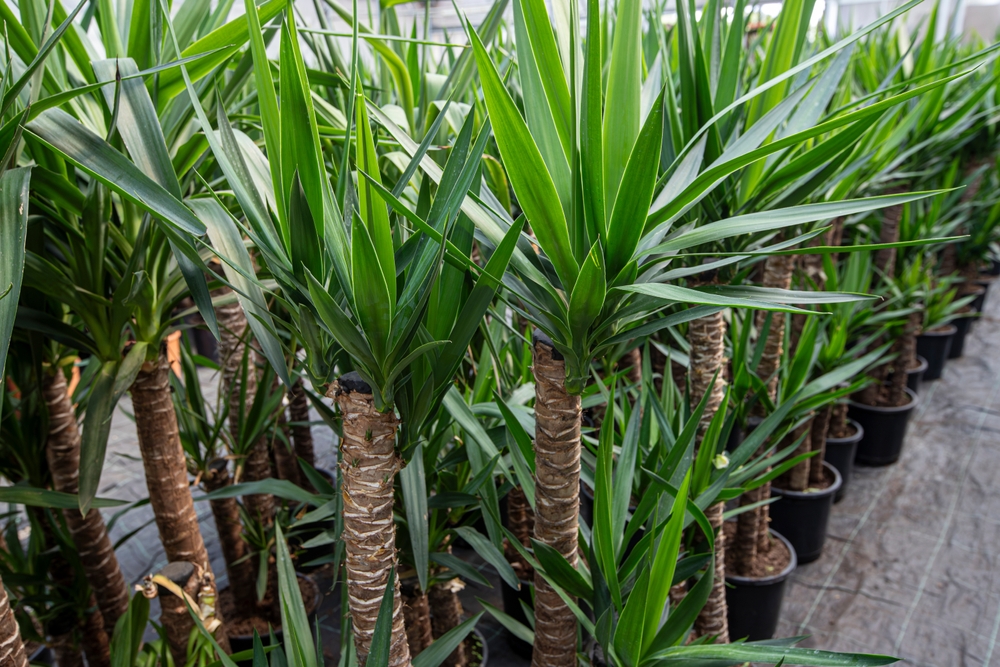

Final Thoughts
Overall, you should probably avoid yucca plants if your cat tends to graze. Most cats won’t be tempted to nibble on yucca plants, especially if they have a pot of soft grass to chew on, but it is a risk to plant yucca somewhere that cats can access. Yucca toxicity in cats is usually fairly mild, but if your cat ingests a large amount, either all at once or over several days, it may cause serious signs and require vet care.
Featured Image Credit: The Image Party, Shutterstock

